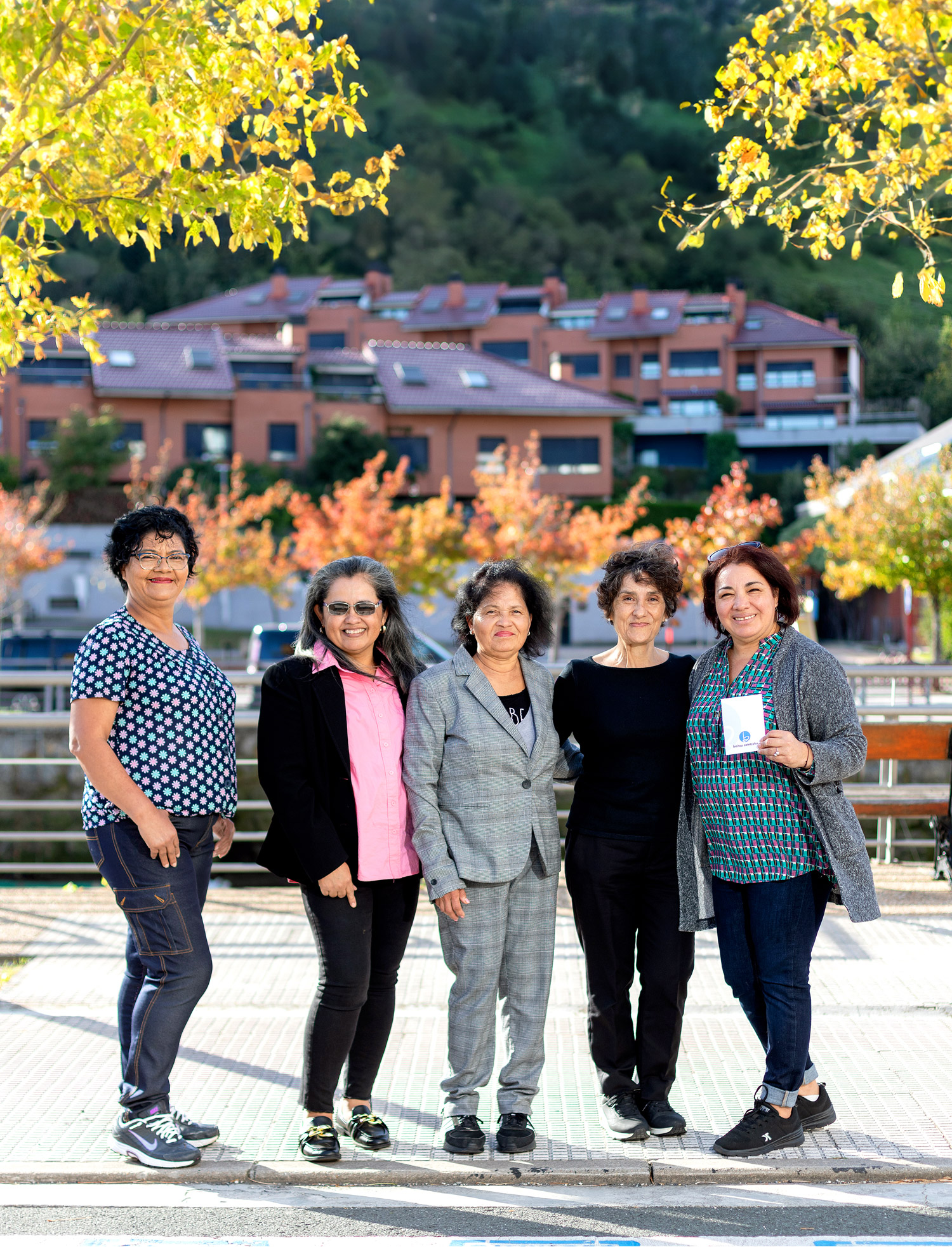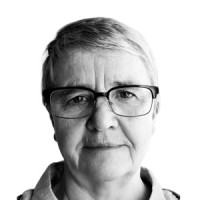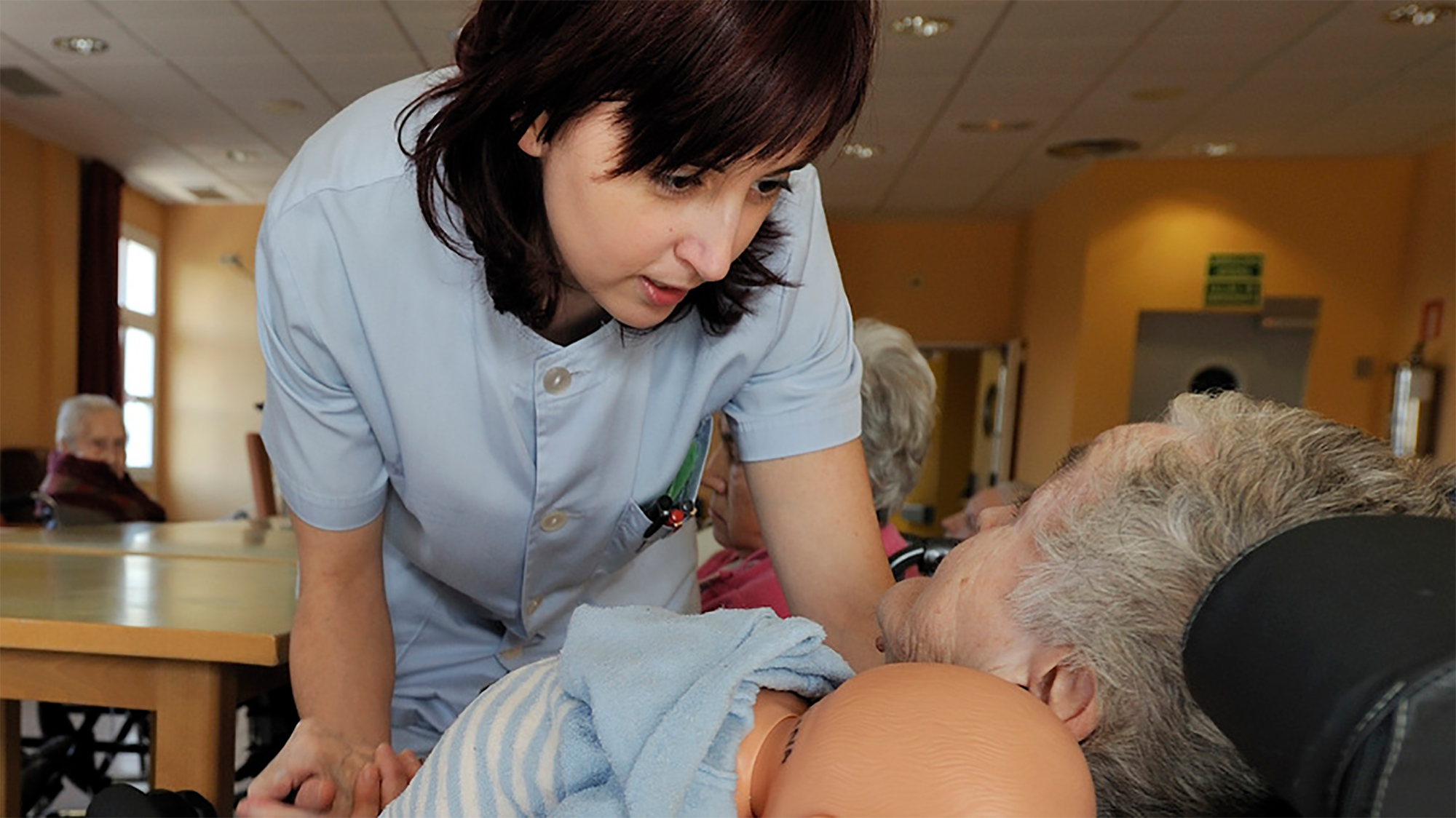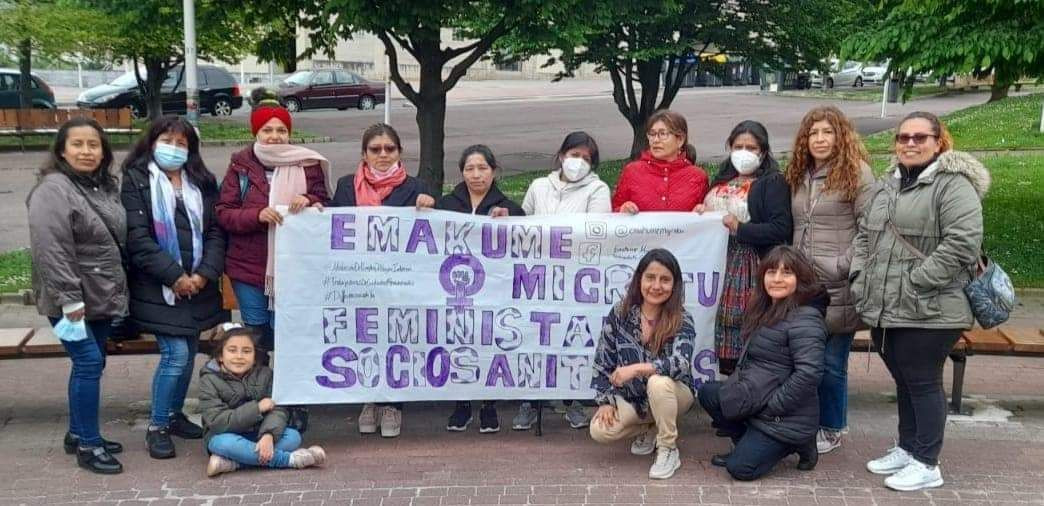Caregiver care
- Since Maria Josefa was diagnosed with Alzheimer's, she is cared for between her sister and her daughter, and Maite, daughter of Maria Josefa, has talked about her fears, difficulties and burden.

Alzheimer's was diagnosed as Maria Josefa more than a year ago and has since been treated by Maite, her daughter and sister Mentxu. She lives with her sister in Viana (Navarra) and every evening she is with Maite. Maite explains that he cares “a lot” because the resources are “scarce”: “To manage everything, great support is needed, both family and institutional.” They're invented names because they want to protect family intimacy.
A week after being diagnosed, the association of relatives of Afan Alzheimer's and other dementias in Navarra had to teach a course in Viana and decided to participate. They talked about the phases of Alzheimer's and her care, among other things. Since then, they have come to Afghanistan every month.
Before she knew she had Alzheimer's, Maite explains that they had some suspicion: “We saw that I didn’t have energy forever and it wasn’t always.” He adds that from the beginning it has been “very hard”: “The main concern is where the disease will take its mother, because she is slowly losing out. That’s why Afan’s people tell us that grief begins before death.” Besides the concern, they felt fear at the beginning: “We know the disease and we know where it is going, it never improves.”
"The main concern is where your mother is going to get the disease, because she's slowly losing. That's why Afan's people tell us that grief begins before death."
Self-care tools
In Afán, the information about Alzheimer's and other dementias, the guidelines for the management of the disease, the techniques of communication with the affected person, the care of the caregiver and the psycho-emotional consequences that occur in the families work. Association psychologist Zuriñe Muzkize explained that it is “very important” to provide the primary caregiver with tools for self-care: “As a reference person for Alzheimer’s, they spend a lot of time and give up their lives.”
The purpose of these tools is to help prevent the overload of the primary caregiver: “There may be behavioral problems and their management is very difficult for the caregiver.” Muzkiza explains that it does not happen in all cases, but that responsibilities can be increased. “In our case, we initially had small difficulties, but then well,” Maite says.
Although there is usually a primary caregiver, in the case of Maria Josefa has two: her sister and daughter. “Don’t neglect your life, but you have your mother in mind all the time,” Maite said.
At first, Maria Josefa was with Mentxu in the mornings, but Maite decided to go to the service of the day center of the Viana Elderly Residence to carry out actions: “It’s all right, you see that energy has changed and helps.” But at first he had doubts, he spoke to Muzzi: “He told me he was going to be OK. As it is difficult to make such a decision, it helps another to give a small boost.”
However, it has had difficulties in moving to the day centre, as the beginning of the pandemic closed: “I started asking long ago that I knew that that moment was going to come.” So far they have had to go to the Estella day centre.
Bost urte igaro dira pandemiaren hasieratik. Pandemia horrek ekarri zuen denok zaintza eredua ezagutzea, inondik inora ere behar bezala ez zebilena. Egoitzetako kutsatzeen eta hildakoen datuak, batez ere pribatuetan, zifra hutsak baino askoz gehiago izan ziren.
2020ko... [+]
Etxeko langile diren eta zaintza lanetan aritzen diren emakumeentzako etxea abian jarri dute Berriozarren. Zortzi pertsonendako lekua duen pisua gaitu dute zaintzan diharduten langileak 6-12 hilabetez espazio duin eta seguru batean bizi daitezen. SOS Arrazakeria Nafarroak eta... [+]
The legislature has ended and the PNV-PSE has not taken steps to change the custody model. The Lehendakari dismisses with a powerful campaign "Towards a Basque pact for care", denouncing "the political use and manipulation of care".
On 1 February, at the visit of the... [+]
I participated in the camp of small revolutions in July to reflect on care. Around the table we sat five women: Laura and Shirley of the Association of Household and Care Employees of Álava; Paula and Ainhoa of the group “Lives of all in the center”; and Kukuso, me.
As... [+]
Urkullu has on many occasions called for the public-private partnership that is at the heart of the capitalist system, but without any intention of explaining what that connection is today. When the public is complementary and dependent, it cannot oppress the interests of the... [+]

















